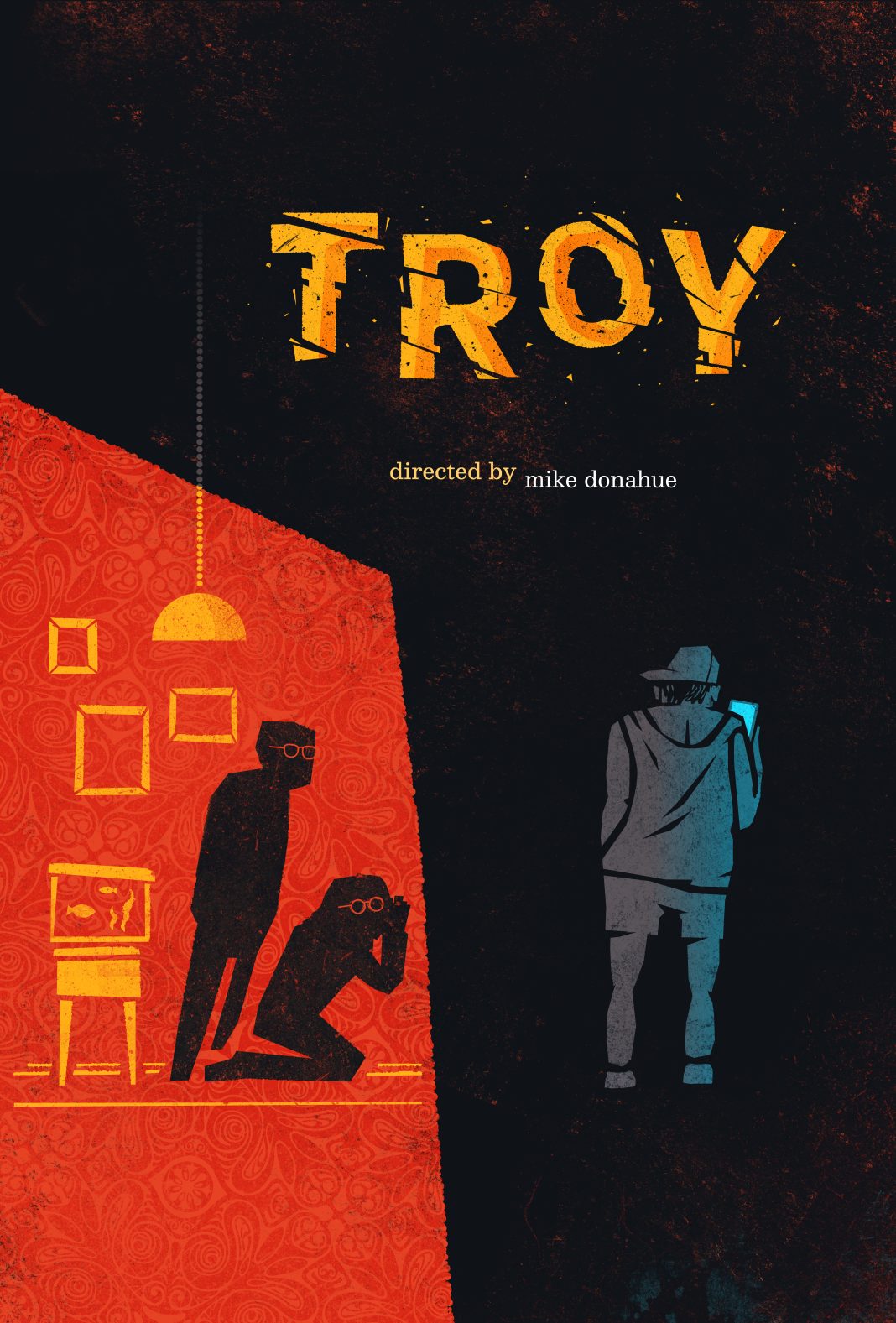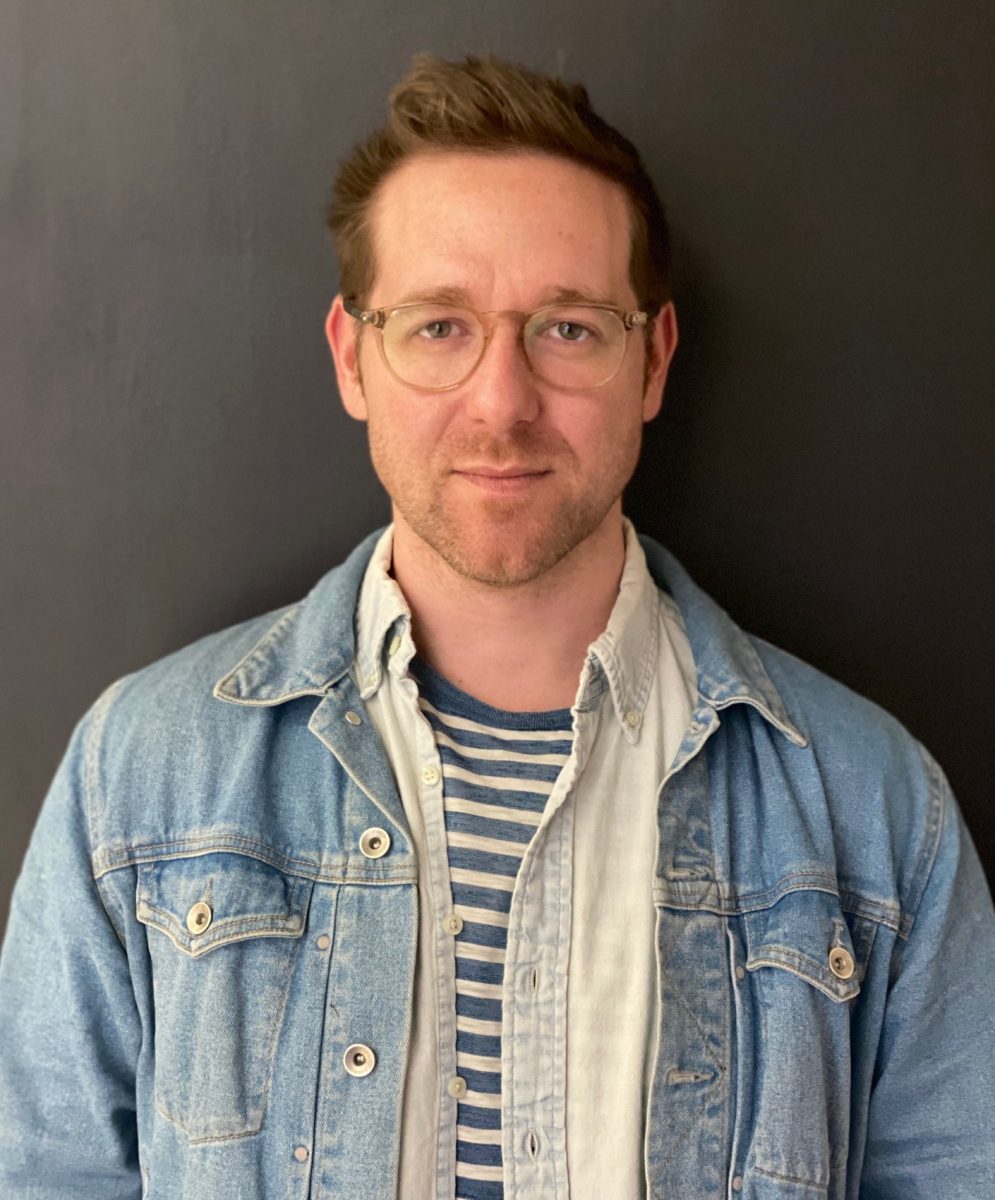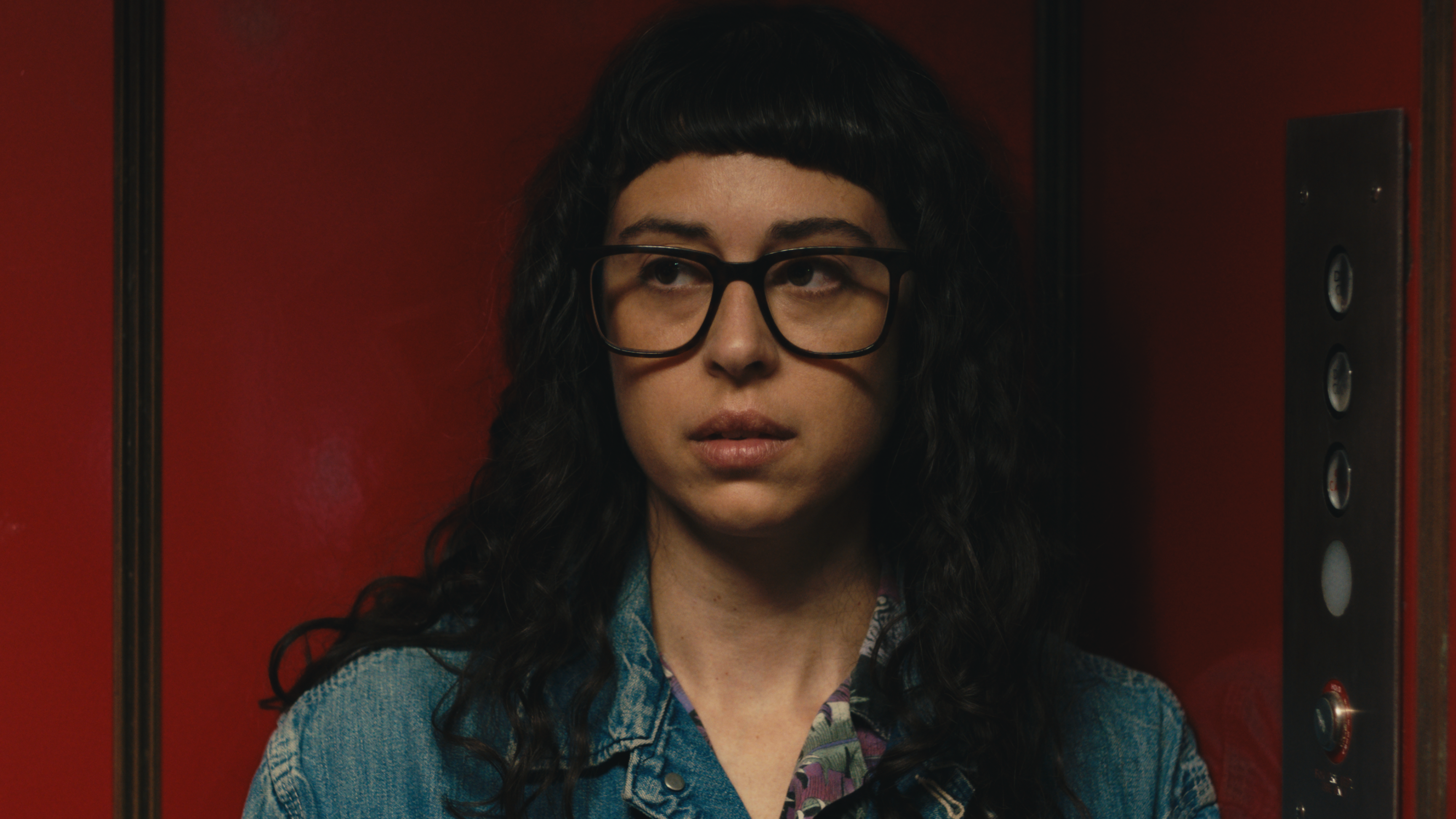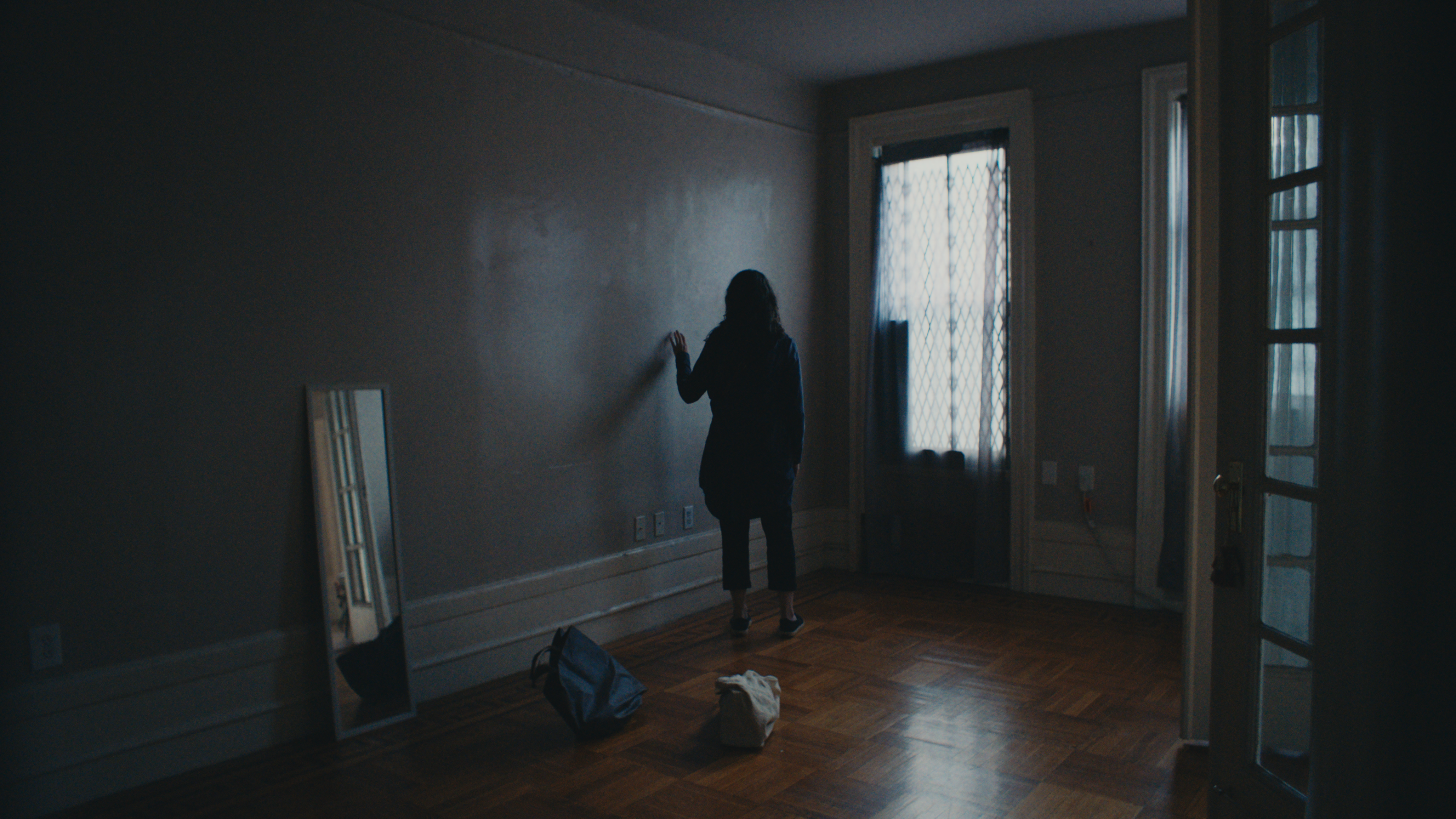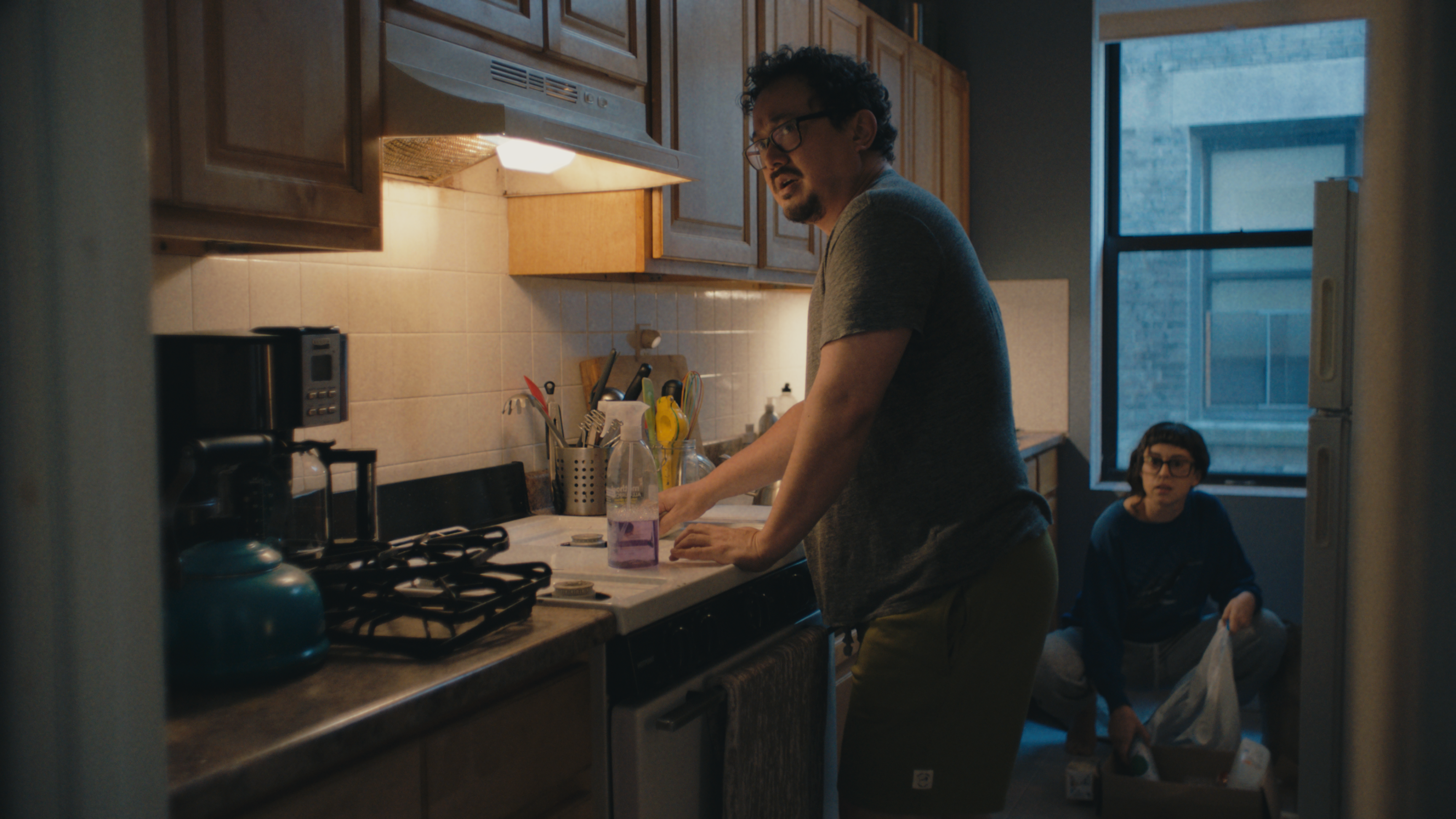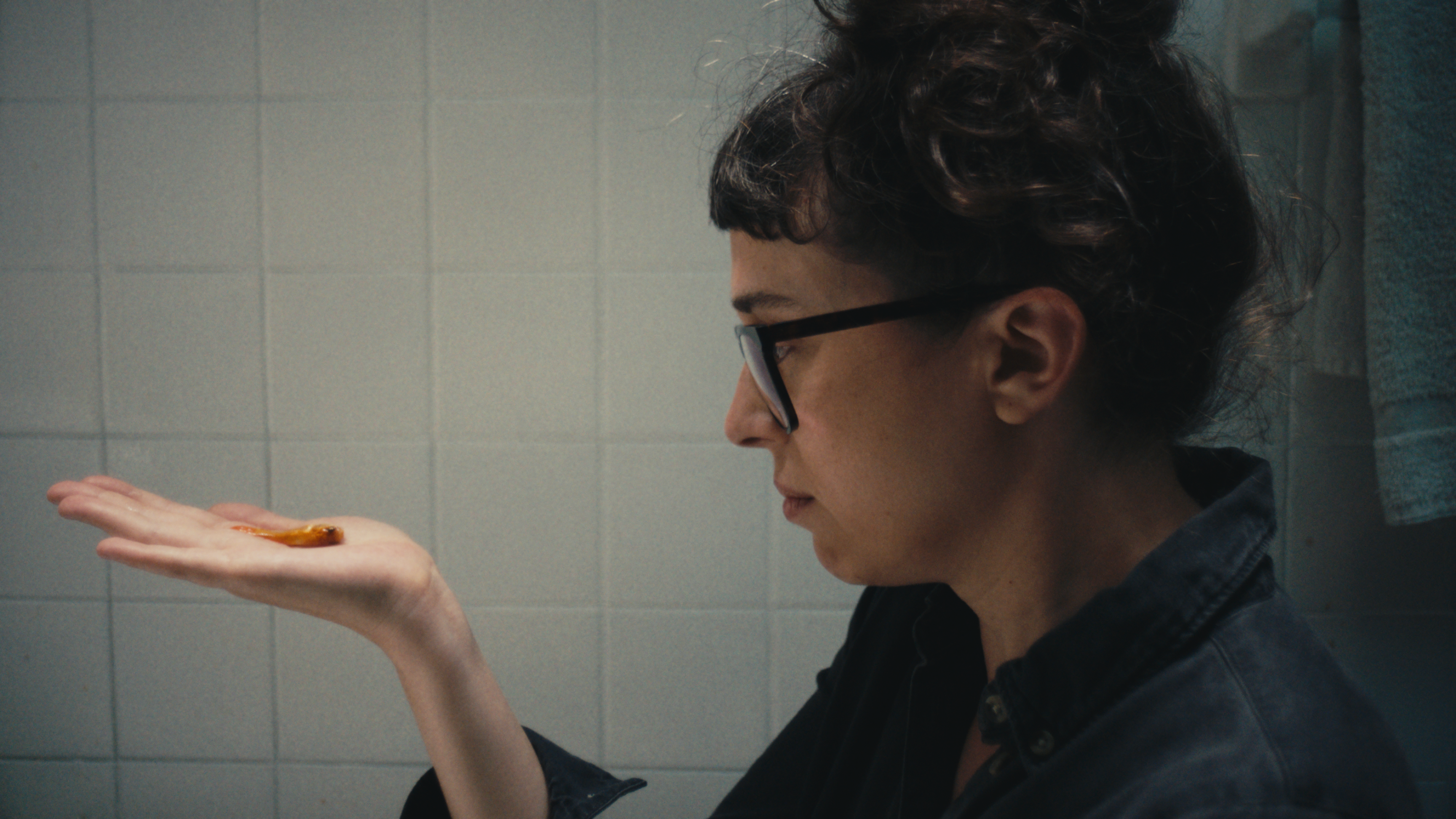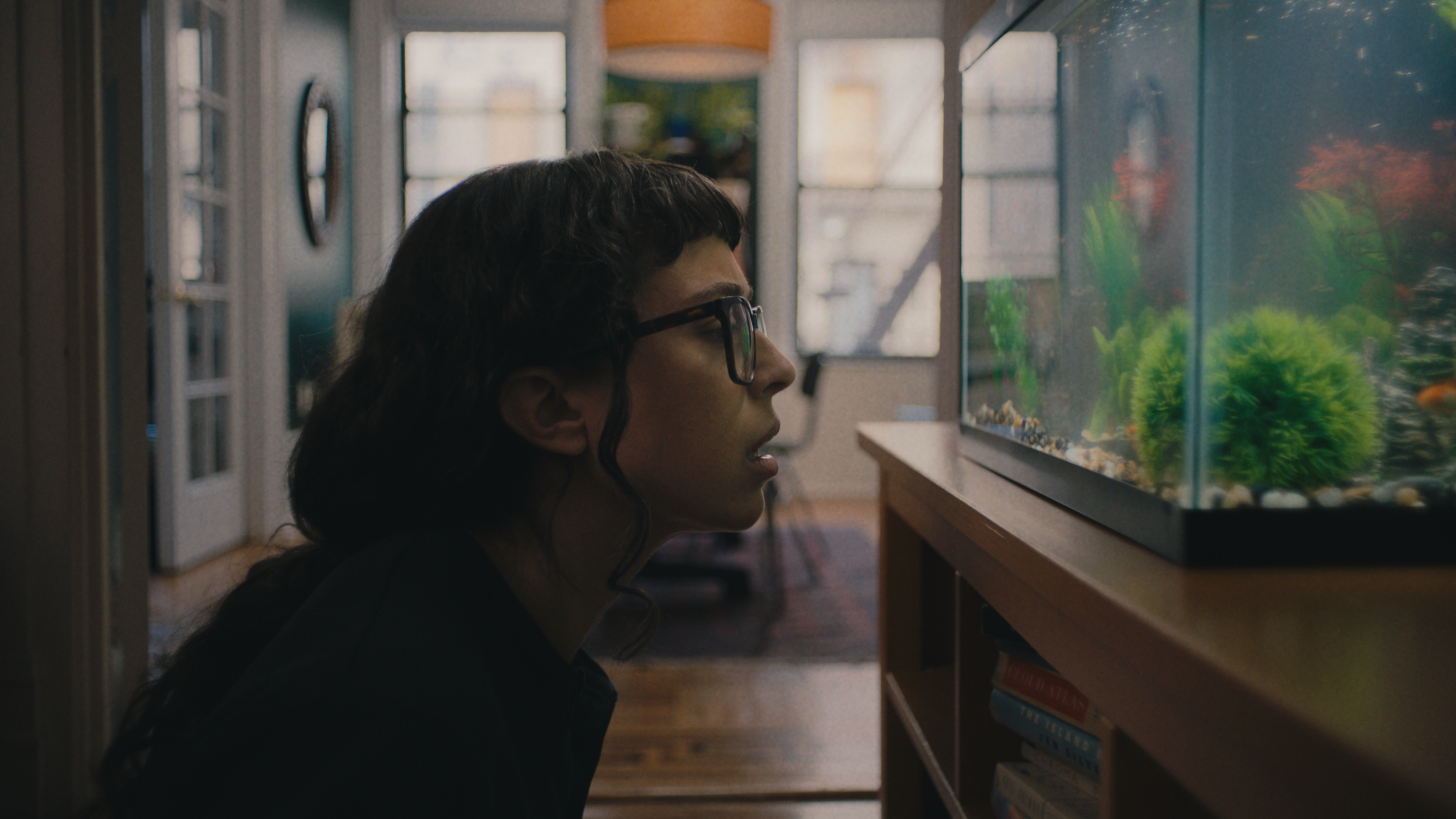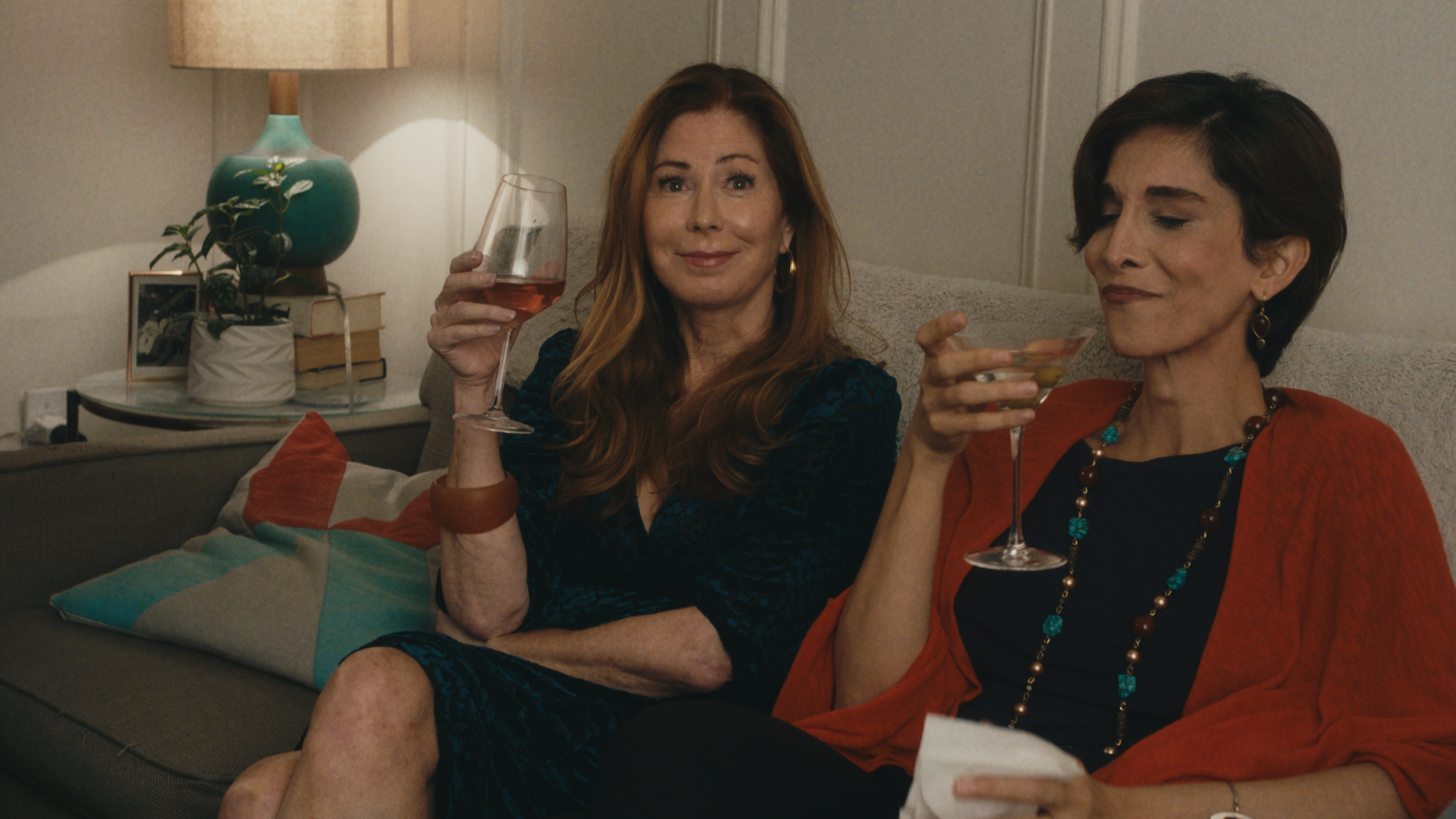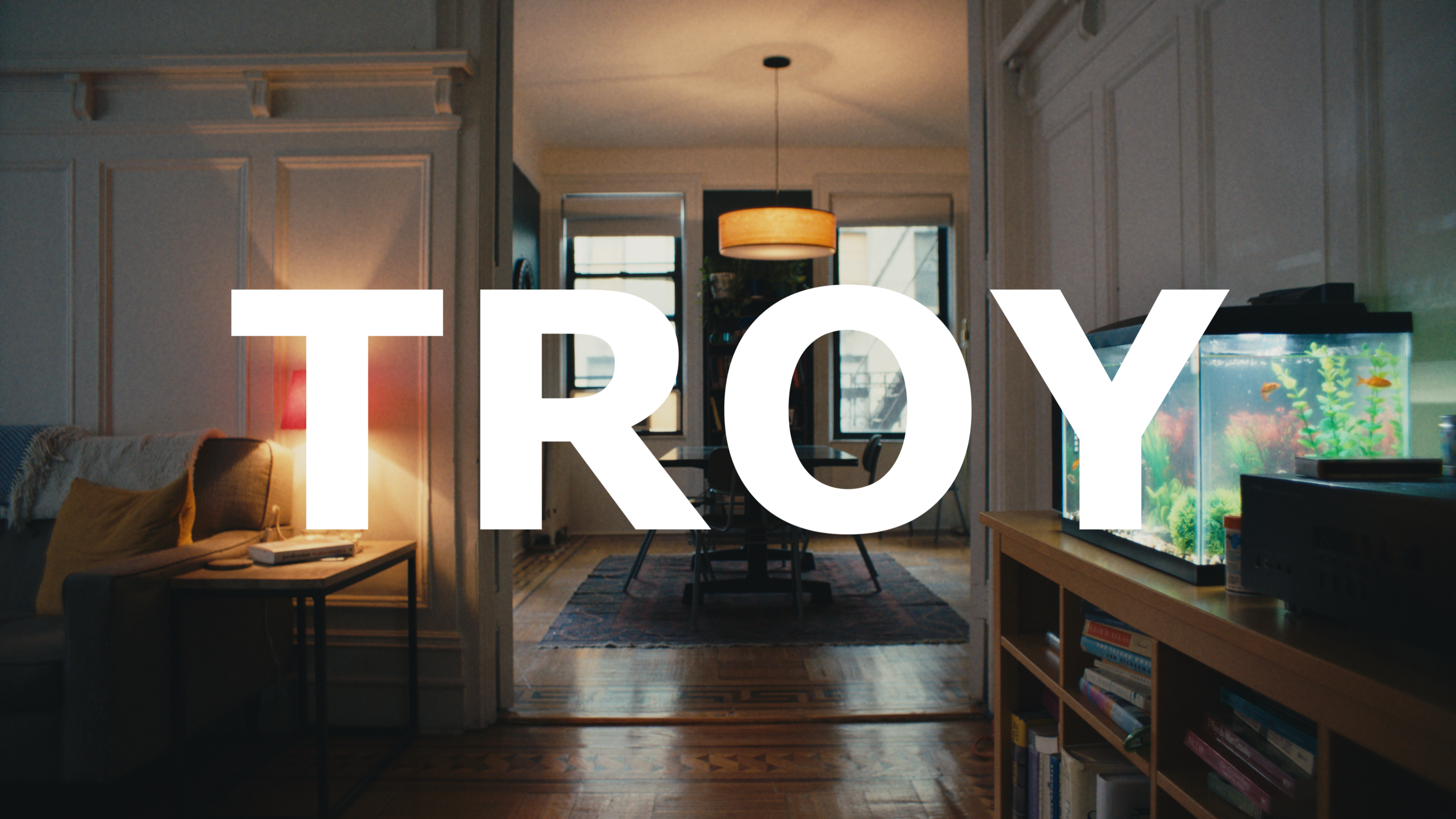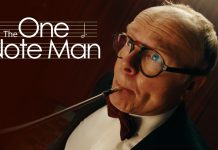Mike Donahue takes the proverbial bite or two out of the Big Apple and goes deep within the spirit of classic apartment conflict in his acclaimed short TROY.
Film And TV Now spoke with the film-maker about the short.
New York has historically always been a magnet for dark comedy in film. What was the start-off point for this short?
As a director, I’ve always been interested in looking at how people navigate loneliness, restlessness, and the competing needs for stability and comforting routine vs. chaos and stimulation.
With Troy, we were specifically inspired by our own experiences with a particularly wild and engaging neighbor.
The film also seems to be about obsession with other people’s dark passions. Do you feel that New Yorkers deep down always have that temptation within them?
I think that’s a deeply universal and human thing regardless of where you live!
I do think the anonymity and proximity afforded by life in a large city like New York can make it easier in some ways to act on those impulses.
Whether in your apartment or on the subway, we live pressed up close against our neighbors, and our lives – in both their daily routines and their moments of piercing pleasure or grief – so often become intertwined with those of our neighbors in unexpected, unnamable ways.
Tell us about your cast.
We created most of the roles for these particular actors, they’re all folks we’ve been lucky enough to work with in NY theatre.
Adina Verson and Dana Delany both did the NYC premiere of Jen Silverman’s play Collective Rage at MCC with us. Max Jenkins was just in the world premiere of Ana Nogueira’s Which Way To The Stage at MCC for me.
Dylan Baker was one of the first directors I ever assisted after I got out of YSD, where Michael Braun and I overlapped. Kristin Villanueva has done three or four plays with me, Phillip James Brannon was in a play of Jen’s at Williamstown.
For our first foray into film together, we wanted to make something specifically crafted to some of the actors we most loved working with – actors whom we knew would give idiosyncratic surprising performances and keep the escalations into increasing absurdity grounded in something real.
How challenging was it to express sexual thoughts and ideas on screen for this particular short and were the actors receptive before shooting began?
Other than seeing Thea and Charlie just beginning to kiss as they listen to Troy orgasm, we never actually show/simulate anything sexual.
But the film is roughly 60% scored with the sounds of Troy having sex. Honestly, the most challenging thing was building our library of all of those various sex sounds – some ideas we’d laid out very specifically in the script, other juxtapositions we were discovering in editing using temp tracks I’d pulled from actual porn (I now have a database of over 200 audio clips, broken down into categories: yelping porpoise, porpoise but more mellow, grunting with ad libs, grunting like a gatling gun, etc).
And then last Christmas, Florian Klein (Troy), our producer Evan and another actor friend (Wyatt Fenner) spent seven hours with me painstakingly creating very specific tracks for us to score with – we had to get ruthlessly specific about the rhythms, the physicality inspiring the sounds, who the people making the sounds might be, etc. Definitely one of the stranger work days I’ve ever had!
Tell us about your production team.
Jen Silverman, Dane Laffrey and I came up with the idea together while in Australia for a month – both close friends, Jen’s the writer I’ve worked with probably more than anyone else in the theatre, we’ve done maybe half a dozen world premieres together and over a dozen productions.
Dane’s an extraordinary production designer, who’s done a lot of those productions with us / many others with me. Evan Jonigkeit, our producer, to whom I’m eternally grateful, we all originally knew as an (phenomenally talented) actor – he did the premiere of Jen’s play Witch out at The Geffen.
Evan introduced us to our DP Ryan De Franco and editor Ashley Roby, who gave me the most generous and inspiring on the fly film school crash course.
Where did you shoot and for how long?
We shot in a friend’s apartment / apartment building in Washington Heights, plus a few other places around NYC (a friends’ UWS rooftop, a nearby park along the Hudson). And we filmed for four days.
Would you like to expand the ideas in the short into a feature idea?
Definitely! Would love to see how far down the rabbit hole Thea and Charlie could go – I think it’s a question of, does the feature retain the buoyancy, heart and joy of the short, or would it go darker?
Did you rehearse much with the actors?
Adina, Michael and I had a few hours to talk through / rehearse in the apartment the day before we started shooting – everyone else was mostly doing quick one-off’s, so we just prepped during set ups.
Coming from theatre, one of the most liberating things about working with actors on set was how specifically you could work on a single moment in front of you – and then throw it away and never have to worry about repeating it!
Who and what are your key cinematic influences?
With Troy, I was definitely thinking about the NYC-set comedies I love – Broad City, High Maintenance, both of which lock into such brilliantly unexpected, sharply specific and off kilter but totally human characters and situations.
And coming from theatre, I was especially excited about the new durational and pacing tools available to me; as we structured the screenplay and edited, I was thinking about some of my all-time favorite films, adrenaline-paced movies, montages packed with quick cuts, Lola Rent and Requiem For A Dream.
You have a long-term background as a theatre director in both New York and Los Angeles. How does the East and West Coast discipline differ and what tend to be the most common factor in stage productions?
In NYC, there is so much vibrant new work happening, the actors there have such sophisticated and generous musculature for developing new work – and they can be so gifted with language.
In LA, I love that so often you’re in rooms with actors who have made a deeply passionate choice to take on that project and to be in that space with you. Ticket sales, and getting audiences back in – it continues to be really challenging in both cities.
Sometimes, I think the oversaturation of work in NYC makes it even harder there. I’ve also had the experience, in casting, that you can get the permission to make stronger, more unexpected casting decisions because the show isn’t happening in New York.
What issues and themes are you keen to explore in future work?
Jen and I are working on our first feature together right now – it’s not Troy as a feature, but Troy serves as a tonal and thematic comp.
We’re again exploring ideas of fixation, obsession and projection – and a series of escalations into increasing absurdity – but this time, things take a darker turn.
How has the festival circuit helped your film?
The circuit, and the handful of awards we’ve won, has helped us to find a very exciting future home for Troy, I could not be more thrilled about where it will go once our festival run is over.
The increased visibility has also been extraordinary. As a theatre director, I’ve only a handful of times had the same production play more than one city – Troy has now screened literally around the world, it’s wild to me.
Finally, what are you most proud of about this short?
I’m still relieved every time I hear folks laugh; you can think what you’re doing is laugh out loud funny, but you never really know ‘til an audience is actually laughing – the first time I ever saw the short screen with an audience was at Outfest, where we played The Ford to a full house, ~ 1200 people – it was incredibly nerve racking.
But the thing I love even more than the genuine laughter, is hearing the sounds of an audience vocally connecting to the heart of the short. I love hearing folks root for, and care about, both this couple and their neighbor.


